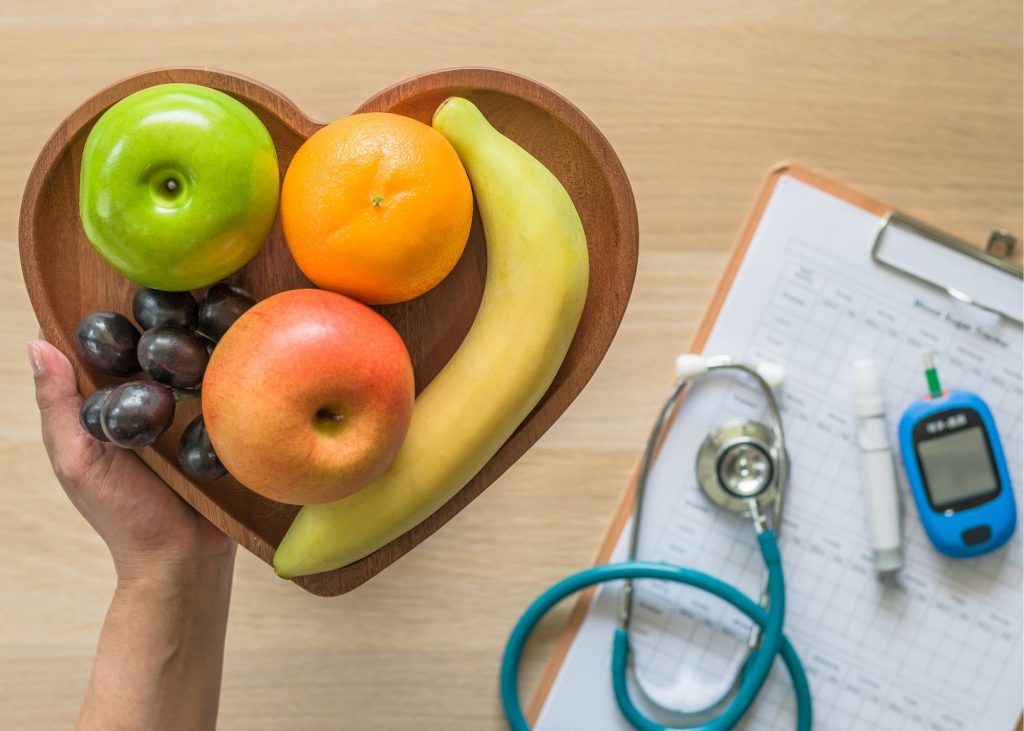
Overview
. Learn what causes high cholesterol and how you can lower cholesterol
. Limit fatty foods as they elevate cholesterol levels
. Remain diligent with diet and exercise and you can minimise risks
What is cholesterol?
We have all heard the term ‘cholesterol’ but may not completely understand what it is or why it is important.
Cholesterol is a fat-like substance that is carried around the body through our bloodstream. Most cholesterol is naturally produced by your liver, but you also get cholesterol from outside sources through the food you eat.
We only need a small amount of blood cholesterol in the body. Cholesterol is used to build cells, produce certain hormones, help with metabolism, produce vitamin D and help digestion of nutrients. However, too much cholesterol in the blood can increase the risk of heart disease.
Types of cholesterol
There are two common types of cholesterol:
- High-density lipoprotein (HDL) – the ‘good’ cholesterol
- Low-density lipoprotein (LDL) – the ‘bad’ cholesterol
High-density lipoprotein (the ‘good’ cholesterol) is healthy because it carries LDL (the ‘bad’ cholesterol) away from the arteries and back to the liver to be broken down and then passed as waste, helping to reduce the risk of heart disease.
Low-density lipoprotein (the ‘bad’ cholesterol) is bad because when its level in the bloodstream is high, it can clog the walls of the arteries, narrowing the arteries and causing a fatty build-up called plaque. Too much plaque leads to blockages that prevent blood from flowing properly to the heart, increasing the risk of heart disease.
What causes high cholesterol
There is no one single cause of cholesterol, but rather a build-up of things. A lack of exercise, inactivity and poor dietary habits can all contribute to high cholesterol. Those at most risk of high cholesterol are those over the age of 45 years, smokers, individuals with a family history of heart disease and those who are overweight.
What is the impact of high cholesterol?
The main concern with high cholesterol is that there is an accumulation of fatty deposits / plaque within the artery walls which restricts blood flow. A blood clot can form which could then lead to chest pain, heart attack and stroke.
How to lower cholesterol
- Cut back on smoking and alcohol
- The right diet, exercise and weight loss all help
Leading a healthy lifestyle through exercise and a healthy diet are key to avoiding high cholesterol and also lowering cholesterol levels.
The Australian Heart Foundation recommends at least 2.5 hours of moderate physical activity per week – walking, swimming, skipping and yoga are all beneficial forms of exercise.
Following a healthy diet over time can also help lower your cholesterol, including: eating plenty of vegetables, fruits and wholegrains, a wide variety of protein sources, especially fish and seafood, legumes (such as beans and lentils), nuts and seeds and having healthy fat choices with nuts, seeds, avocados, olives and their oils for cooking, all help with lowering cholesterol. Limiting discretionary foods like biscuits, cakes and pies and cutting down on salt and fat can also help with lowering cholesterol.
In addition, some lifestyle change, such as cutting back on smoking, drinking alcohol in moderation and losing excess weight, will all help to lower cholesterol levels.
How is high cholesterol diagnosed?
A blood test will show your total cholesterol levels. The measured total cholesterol level is made up of LDL cholesterol, HDL cholesterol and triglycerides (a type of fat in the blood).
In Australia, cholesterol levels are measured in millimoles per litre (mmol/L). The range below is a general guide for a healthy blood cholesterol level, although it is important to note that cholesterol levels vary from person to person and is based on factors such as age and family history, so please consult your doctor:
- Total cholesterol: < 5.5 mmol/L
- HDL (‘good’ cholesterol): > 1.0 mmol/L
- LDL (‘bad’ cholesterol): < 2.0 mmol/L
- Triglycerides: < 2.0 mmol/L
Take a cholesterol test regularly so you can monitor your progress and keep track of your health confidently. Your doctor can help you understand your results and guide you on strategies to not only lower cholesterol but lower the risk of heart disease.
References
Australian Heart Foundation: Physical activity and your heart health
https://www.heartfoundation.org.au/heart-health-education/physical-activity-and-exercise
Heart.org: HDL (Good), LDL (Bad) Cholesterol and Triglycerides
https://www.heart.org/en/health-topics/cholesterol/hdl-good-ldl-bad-cholesterol-and-triglycerides
Health Direct: What is cholesterol
https://www.healthdirect.gov.au/what-is-cholesterol
Better Health: Cholesterol
https://www.betterhealth.vic.gov.au/health/conditionsandtreatments/cholesterol
Hopkins Medicine: Cholesterol in the blood
Mayo Clinic: High cholesterol
https://www.mayoclinic.org/diseases-conditions/high-blood-cholesterol/symptoms-causes/syc-20350800
GET IN TOUCH
GET IN TOUCH
Contact Us
TIER 1 TRAININGSydney CBD,
Inner West & Ryde
Australia
Fill in and send the form below with regard to your inquires.